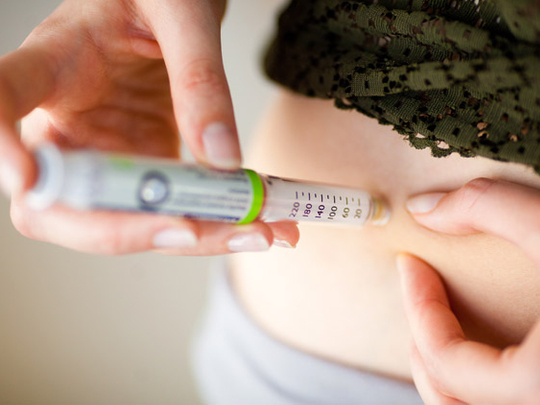
Abu Dhabi: It has been estimated that 32 per cent of the Emirati and expatriate adult population (20 to 79 years of age) in the UAE may contract diabetes or pre-diabetes over the next decade if current trends continue, according to a report presented during Tuesday's final day at the World Health Care Congress 2010 (WHCC).
The total cost of treatment of these patients is likely to be Dh31.27 billion.
Using 39 references, including the International Diabetes Federation (IDF), the UAE national survey, and the Emirates national diabetes study, and after months of work, a team of researchers from the US-based United Health Group compiled a report titled Diabetes in the United Arab Emirates: Crisis or Opportunity? which was presented to the delegates and health care professionals at WHCC, day three.
"We've used some of the UAE-based surveys and modelled forward-based information regarding patient trends with projections for the future.
Our aim is to match up the human and economic impact for the community and the government by building on work that's already in progress and around the preventive screening programmes Abu Dhabi is introducing," said Simon Stevens, executive vice-president, United Health Group, during an exclusive interview with Gulf News.
According to Stevens, the research on diabetes was especially designed to be presented at the WHCC. When asked why diabetes was selected as a topic of preference, he answered: "While the UAE government has a desire to improve primary care, often patients are bypassing primary care clinics and going straight to the hospital outpatient department, which stands out as a real challenge. This research is just a modest contribution to an impressive set of efforts already in place."
It is estimated that 35 per cent of diabetes cases in the UAE go undiagnosed, representing lost opportunities to avoid the costs and complications of a largely preventable disease. If left uncontrolled, according to the findings, Type Two diabetes can lead to severe complications such as heart and kidney disease, nerve damage, blindness and limb amputation.
Risk factor
Medical costs of diabetes and pre-diabetes may rise to an annual Dh5.14 billion by 2020, a 58 per cent increase from an estimated Dh2.41 billion in 2010, according to the report.
The UAE's Type Two diabetes rate is among the top five countries in the world, with about 13 per cent of the population between 20 and 79 years diabetic — more than double the global average of 6.4 per cent.
Being overweight or obese is one of the primary risk factors for diabetes Type Two.
According to the World Health Organisation, 73 per cent of adult women and 66 per cent of men in the UAE are overweight, placing the country in the top five worldwide.
Solutions
Diabetes in the United Arab Emirates: Crisis or Opportunity? There are three solutions which, over the next decade, could help prevent, delay onset of, or control the disease:
- Screening and diagnosis.
- Intervention and prevention.
- Disease management and control.











